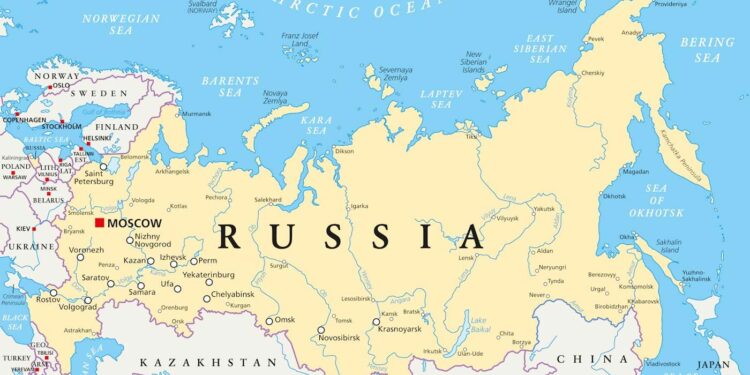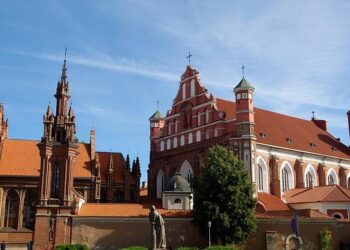Russia’s Controversial Publication on Lithuanian History: A Spark for Debate
In a provocative move that has reignited discussions about ancient narratives in Eastern Europe, Russia has unveiled a contentious book centered on Lithuania’s history, featuring an introduction by Foreign Minister Sergey Lavrov. This publication seeks to offer a Russian viewpoint on Lithuania‚Äôs past and emerges amid escalating tensions between the two nations, as well as meaningful geopolitical changes in the region. As Lithuania marks 32 years of independence from Soviet domination,this initiative raises essential questions regarding historical interpretation,national identity formation,and the complex dynamics between these neighboring countries. The release has elicited reactions from scholars and political leaders concerning its potential consequences.
Russia’s Revisionist Take on Lithuanian History
The recent Russian book has sparked considerable backlash due to its controversial portrayal of Lithuanian history. With Lavrov‚Äôs introduction setting a particular tone, the text attempts to undermine Lithuania‚Äôs sovereignty and historical legitimacy. Critics argue that this narrative is part of a broader trend of historical revisionism that selectively manipulates facts and speculative claims to further Russia’s geopolitical interests. Opponents contend that such representations not only misrepresent crucial events but also jeopardize Lithuania‚Äôs cultural and political identity.
Several key issues have been raised regarding this publication:
- Reinterpretation of Key Events: The book revisits significant moments in Lithuania’s struggle for independence while suggesting narratives influenced by Russian imperial ambitions.
- Diminishing Sovereignty: By heavily emphasizing ties to the Soviet era,it undermines contemporary affirmations of Lithuanian autonomy.
- A Misleading Sense of ‘Shared History’: The text promotes an inaccurate notion of communal heritage aimed at reviving ideas of Russian benevolence towards Lithuanians during past conflicts.
This publication necessitates scrutiny regarding its impact on regional relations. Below is a table contrasting key themes presented in the book with counterarguments from Lithuanian historians:
| Thematic Focus | Russian Outlook | Lithuanian Response |
|---|---|---|
| Cultural Conflicts | Presents Russian involvement as ‘support’ | Frames it as a struggle for freedom and survival |
| Soviet Influence | Presents positive impacts on Lithuanian growth | Sheds light on oppression experienced during that period |
| Cultural Heritage | Presents shared cultural narratives | Acknowledges distinct national identity |
Lavrov’s Introduction Sparks Discussion Over National Identity and Historical Narratives
The release featuring Lavrov’s introduction has ignited fervent discussions about how intertwined historical accounts shape national identities. Critics assert that his involvement may skew interpretations toward Russia’s interests while supporters claim it offers vital insights into Baltic history shaped by external influences over time.
This dialog among scholars highlights several critical themes:
- Historical Distortion: Concerns arise regarding biased representations within accounts of Lithuanian history.
- Formation Of National Identity: The influence history holds over modern national identities undergoes thorough evaluation.
- Diplomatic Relations: The potential effects this publication could have on future interactions between Lithuania and Russia are scrutinized.
| Viewpoint | Consequences | ||||||||||||
|---|---|---|---|---|---|---|---|---|---|---|---|---|---|
| Critical Perspective | Risking increased diplomatic tensions. | ||||||||||||
| Supportive Viewpoint | Fostering dialogue among nations. |
| Date Year | Description Event | Academic Reaction / tr /> |
|---|---|---|
| Date Year 1990 | Description Event Lithuania declares independence | A surge emerges emphasizing sovereignty-focused narratives. |
| Date Year 2008 | Description Event Russia invades Georgia / td/> | Scholarship reflects security concerns. |
| Date Year 2022 / tr/> | Description Event Russian invasion Ukraine / | Shift towards discourse emphasizing aggression identity. |
















